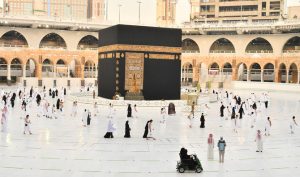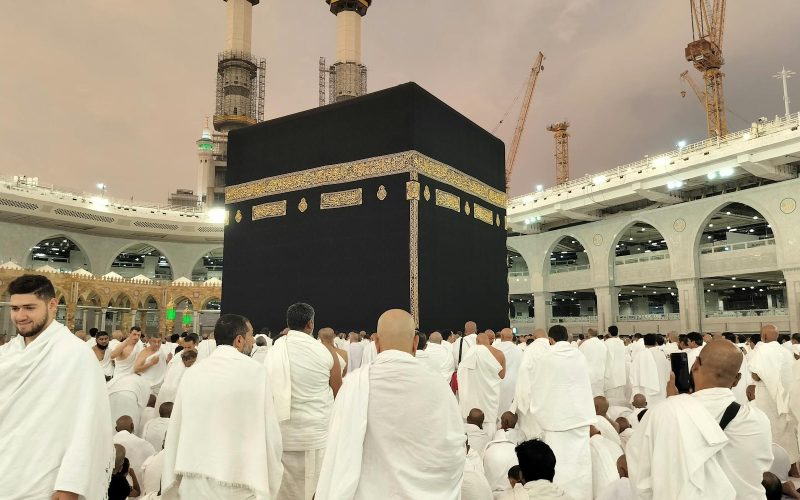Introduction
Performing Umrah is a deeply spiritual journey that holds special meaning for Muslims around the world. For Muslims living in the UK, planning this sacred trip to Makkah requires careful thought about timing, weather, crowd levels, and travel costs. While Umrah can be performed at any time of the year, choosing the best time can make your experience more comfortable, affordable, and spiritually rewarding.
In this article, we’ll explore the best times to perform Umrah from the UK, considering important factors like climate, prices, and crowd conditions. Whether you’re traveling for the first time or returning for another blessed journey, this guide will help you plan wisely and make the most of your Umrah experience.
Understanding Umrah and Its Significance
Umrah, often called the “lesser pilgrimage,” is a voluntary act of worship that can be performed at any time of the year. It involves visiting the holy city of Makkah and performing specific rituals, such as Tawaf (circling the Kaaba), Sa’i (walking between Safa and Marwah), and shaving or cutting the hair.
Although it’s not obligatory like Hajj, Umrah carries immense spiritual rewards. It allows Muslims to cleanse their hearts, seek forgiveness, and strengthen their connection with Allah. Many Muslims from the UK prefer performing Umrah due to its flexibility and the opportunity to travel outside the Hajj season.
Factors to Consider When Choosing the Best Time for Umrah
To determine the best time to perform Umrah from the UK, several factors come into play. Let’s explore them in detail.
1. Weather Conditions
The weather in Saudi Arabia varies greatly throughout the year. Summer months, from May to September, are extremely hot, with temperatures often exceeding 40°C. For many UK travelers, this heat can be challenging, especially when performing rituals outdoors.
Winter, from November to February, offers cooler and more pleasant weather, with daytime temperatures between 25°C and 30°C. This makes it one of the most comfortable times for Umrah. The moderate climate allows pilgrims to perform rituals without discomfort or exhaustion.
2. Crowd Levels
The number of visitors in Makkah and Madinah changes depending on the time of year. Peak seasons often mean larger crowds and higher prices. Here’s a breakdown:
- Ramadan: Umrah during Ramadan is highly rewarding spiritually, as good deeds are multiplied during this holy month. However, it is also one of the busiest times, with millions of Muslims visiting Makkah. Expect crowded conditions and higher prices for flights and hotels.
- Hajj Season: Umrah visas are suspended during the Hajj period, typically from late Dhul Qadah to mid-Muharram. Travel during this time is not possible for Umrah pilgrims.
- Off-Peak Months: Months like Safar, Rabi al-Awwal, and Jumada al-Thani are considered quieter. Fewer crowds mean easier access to the Kaaba and shorter waiting times, allowing for a more peaceful experience.
3. Travel Costs
For UK travelers, the cost of performing Umrah can vary depending on the time of year. During Ramadan and school holidays, prices for flights and hotels increase due to high demand. On the other hand, traveling during off-peak months offers better deals and discounts.
If you’re traveling on a budget, it’s best to plan your Umrah between mid-September and early March, avoiding major holidays. Many travel agencies in the UK offer affordable Umrah packages during these months.
4. School Holidays and Work Schedules
For families and working individuals, school holidays and annual leave play a big role in planning Umrah. Many UK families prefer to travel during half-term breaks, Easter holidays, or Christmas time. These periods allow children to participate in the journey without affecting their studies.
However, it’s worth noting that traveling during school holidays can mean higher prices and busier airports. If flexibility allows, traveling just before or after these periods can help save money while avoiding crowds.
5. Personal Preferences and Spiritual Goals
Some people prefer performing Umrah during special Islamic months like Rajab, Sha’ban, or Ramadan for their spiritual significance. Others may choose quieter months to focus on reflection and prayer. Your personal goals, health, and comfort should guide your decision.
The Best Times to Perform Umrah from the UK

After considering all factors, here’s a detailed guide on the best times for Umrah from the UK:
1. November to February (Winter Season)
This is widely regarded as the best time for UK pilgrims to perform Umrah. The cooler weather makes walking between sites easier and more comfortable. Additionally, this period usually falls outside of major school holidays, so prices for flights and accommodation are reasonable.
Winter months also see fewer crowds compared to Ramadan or Hajj season, allowing for a more relaxed and spiritual experience. Many families and elderly travelers find this time ideal for its comfort and affordability.
2. March and April (Spring Season)
Spring offers mild temperatures and a pleasant atmosphere. This period is great for those who want to travel before Ramadan but still enjoy moderate weather. However, prices can rise slightly as more pilgrims start preparing for the holy month.
3. During Ramadan
Performing Umrah during Ramadan holds great spiritual value. The blessings of this month multiply every good deed, and many Muslims wish to experience the holy atmosphere of Makkah during this time.
However, this period is also the busiest. Expect high prices for travel and accommodation, long queues, and crowded mosques. If you’re prepared for the hustle and want to experience the unmatched spirituality of Ramadan in Makkah, this is a deeply rewarding choice.
4. After Hajj Season (Muharram and Safar)
Once the Hajj season ends and Umrah visas reopen, the number of visitors drops significantly. This is an excellent time for those seeking peace and fewer crowds. Flight and hotel rates are also lower, making it ideal for budget-conscious travelers from the UK.
Tips for Planning Your Umrah from the UK
To make your Umrah journey smooth and stress-free, here are some useful tips:
- Book Early: Plan and book your Umrah package in advance to get the best deals on flights and hotels.
- Check Visa Requirements: Make sure your travel documents, including your Umrah visa, are ready before booking your trip.
- Choose the Right Package: Compare packages offered by UK-based travel agencies. Look for options that include flights, accommodation, and transport for convenience.
- Stay Hydrated: Even in cooler months, Saudi Arabia’s dry climate can cause dehydration. Keep water with you during rituals.
- Wear Comfortable Clothing: Choose light, breathable fabrics that suit the weather.
- Plan for Madinah: If possible, include a visit to Madinah in your itinerary. Visiting the Prophet’s Mosque adds immense spiritual value to your Umrah trip.
- Travel Insurance: Always purchase travel insurance that covers medical emergencies, cancellations, and lost luggage.
The Ideal Time Based on Your Travel Goals
- For Comfort: November to February offers the best weather and manageable crowds.
- For Budget-Friendly Travel: September, October, and early March have lower travel costs.
- For Maximum Spiritual Reward: Ramadan offers unmatched blessings, though it’s more crowded and expensive.
Every time of the year has its advantages. The best time ultimately depends on your comfort, budget, and personal goals.
Conclusion
Performing Umrah is a beautiful journey that connects the heart to faith, peace, and devotion. For pilgrims traveling from the UK, choosing the best time to go can make a big difference in their experience. The winter months, from November to February, stand out as the most comfortable and affordable period, while Ramadan provides immense spiritual reward for those willing to embrace the crowds.
No matter when you choose to go, what matters most is your intention and preparation. Plan early, stay mindful of your health, and focus on the purpose of your journey—to seek closeness to Allah and refresh your soul in the holiest place on earth.










